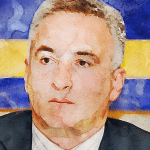When security token offerings (STOs) first appeared several years ago, analysts and investors alike saw huge potential: at last, the technology with the capability to leapfrog securities markets into the future had arrived--or, so many seemed to think.
After all, traditional securities markets--which were largely run on centralized digital systems (at best) and paper-and-pen (at worst) suddenly had the ability to change. Through Blockchain , securities markets could be transformed into decentralized, immutable marketplaces where ownership could be transferred at low cost and with great ease.
However, several years later, in spite of the initial hype surrounding security token offerings, there hasn’t been very much development in the STO space. Why is this?
Recently, Finance Magnates’ Rachel McIntosh joined five experts from across the STO space to speak about the obstacles standing in the way of the development of securities markets, how companies in the space are navigating these obstacles, and why launching an STO is worth the extra work.
Finance Magnates · FMTV: CoinMetro, Ignium, COG Network, Tangible, & Finance Magnates @ Singapore Blockchain Week
The panel, which was presented at the virtual Singapore Blockchain week, included Reimo Hammerberg, the Co-Founder & CEO of Ignium, an Estonia-based firm that offers an end-to-end security token launching solution. Kevin Murcko, the Founder & CEO of CoinMetro, who also co-founded Ignium, was also on the panel.
Also present on the panel was Evan Griffin, Founder at Tangible KK, a Japan-based company that is working to launch a security token sale tied to real estate in Niseko, Japan.
Darryl Parker, Chief Technology Officer and co-founder of COG Network, which is also working on holding an STO, also spoke on the panel, as well as Zoran Djikanovic, the President of the Capital Market Authority in Montenegro.
The following is an excerpt that has been edited and condensed for clarity and length. To hear the whole panel discussion, visit us on Soundcloud or Youtube.
When it comes to regulations, an STO is effectively the same as an IPO
Reimo Hammerberg, co-founder and chief executive of digital securities firm Ignium, explained that when it comes to the regulatory side of things, STOs are virtually identical to IPOs.
“An IPO is a conventionally-known capital market transaction where the company sells its financial instruments, or securities, across borders to investors; an STO, effectively, is nothing else: it is the same,” Hammerberg said. “The same set of regulations apply...everything related to investor protection, whether its good or bad.”
Of course, “in general, it’s good,” he added.

Reimo Hammerberg, co-founder and chief executive of digital securities firm Ignium.
Reimo explained that therefore, any possible benefits associated with holding an STO over an IPO are not related to regulations. Instead, the benefits of STOs lie within the comparative processes of holding an STO rather than an IPO.
These include “efficiency, real-time settlement, reducing risks, cutting out intermediaries, and so forth--hence, making the fundraising process more cost-effective, cheaper, and more resilient.”
“However, these benefits don’t come directly from the technology, as such,” Reimo explained. Instead, “they come from the technology combined with the redesigning of how capital markets operate.”
Capital markets are fragmented; however, blockchain technology has the potential to change this
In other words, “capital markets are traditionally built based on [geographical and governmental] jurisdictions.” Various regions of the world, along with some countries, have their own, separate capital markets infrastructures.
“Japan has a separate one; the US has a separate one. In South America, countries have different ones. In Europe, capital markets are fragmented.”
However, “the blockchain enables us to design and build a system where all of the capital markets in the globe would be connected,” which would allow investor capital to flow more freely throughout the globe.
“When you have an issuer in Japan, and a willing investor in the US and in Europe, they all can connect seamlessly and without undue hassle. That’s the big revolutionary thing that the use of blockchain can bring about.”
Reimo said that this effectively enables “people that are issuers (with the ideas) and investors (with the money) to connect directly,” as well as investors in secondary, or peer-to-peer markets to connect with one another.
“When that happens, a lot of wealth could be unlocked.”
”STOs are a step forward from ICOs in the sense that we can actually maintain this market and grow it.”
Kevin Murcko, the founder and chief executive of CoinMetro and co-founder of Ignium, also explained that while STOs are, in some ways, similar to ICOs, there are some key differences.
“If we really compare the ICO bubble to STOs--ICOs were quite more innovative in many ways than what we currently see as far as security token offerings,” Kevin explained.

Kevin Murcko, the founder and chief executive of CoinMetro.
“I say innovative because, well, they didn’t have the regulatory burden--they should’ve had the regulatory burden, and that’s part of the reason why the bubble exploded.”
“When we think about substantiveness, and how this market is going to last, Regulation has to come into play--it has to,” Kevin continued. “Regulations are not put there to hinder--although, sometimes, they do hinder; they are there for a reason.”
Therefore, STOs could be a sort of more mature, sustainable continuation of the ICO market: “ICOs were in an unregulated market,” Kevin said. “ICOs had a very steep learning curve: you had investors that had to come in and understand an entirely new concept that had no crossover into traditional investing.”
Kevin believes that in the STO space, “you could see this kind of ‘marriage’ of traditional markets and these new, novel markets, which will make it easier and easier for people to participate.”
“We still have the barrier of regulation...but STOs are a step forward from ICOs in the sense that we can actually maintain this market and grow it; we can take traditional assets and move them into this STO arena that currently exists.”
STOs still haven’t managed to find their investor “niche”
Still, even though there may be some major benefits associated with the development of the STO space, the fact remains that STOs haven’t managed to catch on in the same way that ICOs did.
Part of the reason for this could be that STOs--and the cryptocurrency investment space more generally--has a few persistent issues with public perception and reputation.
Evan Griffin, founder of Japan-based bond securities firm Tangible, spoke a bit about his own personal experience with the process of launching an STO, and the obstacles that came up along the way: “on a personal level, I thought that the crypto guys would jump in and think that [the tokenized securities] we were offering were a great product in a great area.”

Evan Griffin, founder of Japan-based bond securities firm Tangible KK.
Tangible’s product, also known as “BaseCamp”, will tokenize seven double-level units in Niseko, Japan.
However, Evan explained that the cryptocurrency investors that Tangible originally approached as possible investors for the BaseCamp security tokens: “the crypto space investors are looking for 100x returns--or more--like we saw from the ICOs, even though they weren’t backed by anything, and 99 percent of the time, people lost their funds.”
Therefore, part of the journey toward building the STO space will likely have to do with reaching out to investors outside of the cryptocurrency space: “once we reach into the wider market, I think we’ll find a lot more interest.”
“To tokenize, we can reach people around the world, and they can get involved for a small sum: we’re offering a property development. Often, in the past, if someone wanted to get involved in a property, they’d need to buy one unit; it might be a few hundred thousand to get yourself into a property. But here, people can get access to a property for as little as 50 euros, or even less.”
STOs have great potential to unlock the flow of capital, but the process of holding a compliant security token sale can take years
Darryl Parker, Chief Technology Officer and co-founder of US-based investing ecosystem firm COG Network, also said that his company’s journey toward holding an STO has not gone as expected--in COG’s case, however, the obstacles have been largely regulatory in nature.
“In our experience, we thought that we could do this in a significantly more timely manner than what we’ve been able to do,” Darryl explained. “We’ve been working on this for a couple of years now, trying to deal with all of the regulations here in the United States, with the SEC, CFTC, and anyone else who wants to have their hands on it.”
COG has also been “looking abroad to dealing with trying to remain in complete compliance with locations that we may look to launch in.”
In other words, “it’s definitely been a bit of a challenging experience,” Darryl said. However, it is possible: “to any of those that are considering doing this, just plan and plan more; realize that there’s going to be a lot of legal interaction, and advisors and other people that you’re going to want to bring in to bolster up all of your capabilities.”
And in spite of the obstacles along the STO pathway, Darryl believes in the long-term potential of the STO market: “we’re dealing with products that are usually reserved for ‘upper echelon’ individuals--we’re using trading strategies that previously might have been limited to people that can invest at a minimum maybe $25,000.”

Darryl Parker, Chief Technology Officer and co-founder at COG Network.
However, “we can take some of these different assets and offer them to people that wouldn’t have access to that,” he said. “That’s why we look at tokenization and the use of fractionalization as being a key metric for distributing these technologies around the world.”
Companies who are hoping to hold STOs: “be very honest” with regulators
Despite the regulatory difficulties that are currently associated with the process of holding an STOs, however, there are some regulators that are increasingly open to working with companies that wish to hold security token sales.
Zoran Djikanovic, President of the Capital Market Authority in Montenegro, explained that his country is doing just this: “we in the Capital Market Authority in Montenegro were trying to innovate for the last couple of years through the concept of regulatory sandboxes and giving regulatory frameworks for new ideas,” he said.
Through this process, “what we found in capital markets is that we should innovate,” Zoran said, adding that it’s important to take a proactive approach toward regulating for the future: “the up-and-coming youth population is very good at taking on innovation...and they have money. Their market is growing.”
Therefore, “all of this innovation that we are talking about is not aimed only toward ‘mature financial institutions’: it’s aimed toward the growing market of the young population that is taking over. That’s our approach.”
Because of these global shifts, it may be a good idea for companies that might be looking to launch an STO to seek forward-thinking regulators.
“Regulation is always inward-looking in nature; it’s protective of a nation’s citizens,” Zoran explained.
Therefore, when approaching any regulator for the purpose of launching an STO, however, Zoran said that the best policy is always to “be very honest” and to talk freely about “what your idea is, what it brings to the market, and what the added value is.”
This is an excerpt that has been edited and condensed for clarity and length. To hear the whole panel discussion, visit us on Soundcloud or Youtube.

Zoran Djikanovic, President of the Capital Market Authority in Montenegro.


















